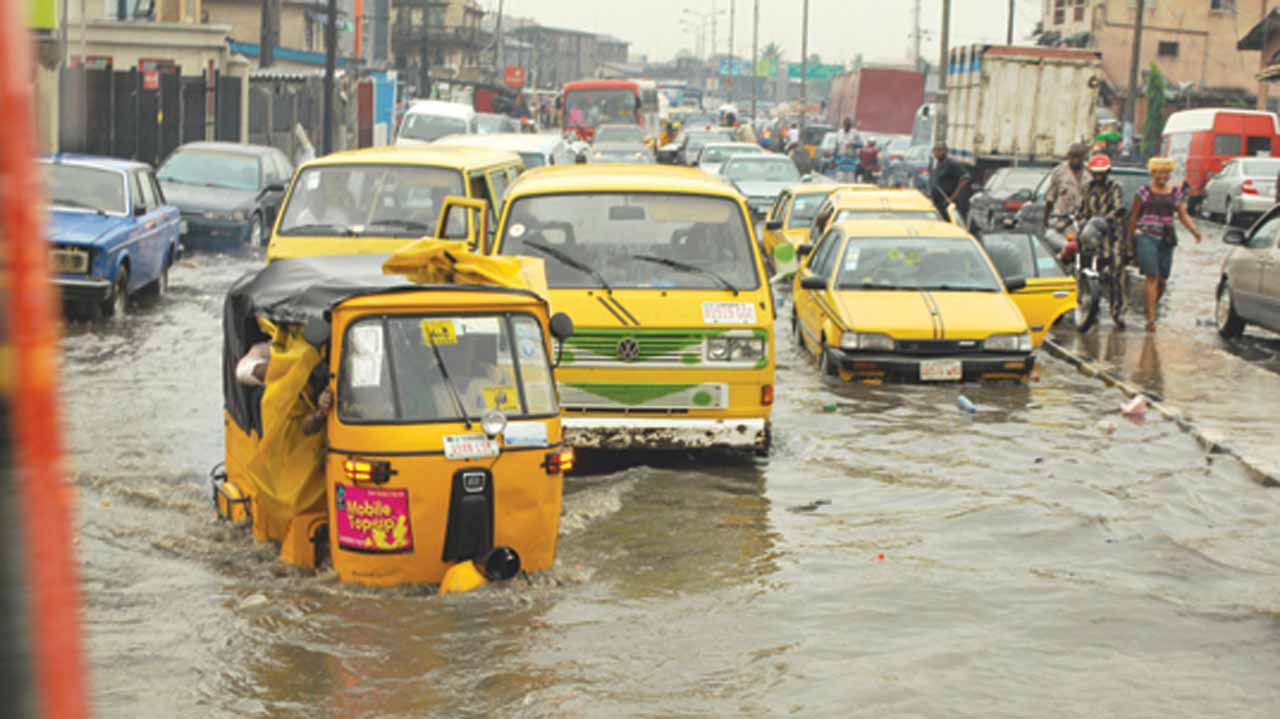
After several warnings by climate scientists, property owners and tenants confronted by increased coastal flooding due to rising sea levels are moving to high locations.
Increasing coastal floods worsened by heavy rainfalls across the country has forced over 50,000 property owners and tenants to relocate from their homes.
This development, housing experts warned could further compound Nigeria’s housing deficit estimated around 17 million units, and which requires more than N56 trillion to abate.
The rate of flooding in Lagos, Abuja and other states has generated concerns as many residents of the affected areas are left with no other choice than to vacate their homes.
While there have been calls for better urban development, and design of new adaptation principles to curtail flooding of properties in major Nigerian cities, efforts of the government in finding solutions to the challenge have not really yielded positive results.
Investigations revealed that in 2019, 48,114 people were displaced, and about 29,356 houses destroyed due to flooding with many property owners having to relocate.
The Nigeria Hydrological Survey Agency had in its 2020 yearly flood outlook report, predicted that 102 local government areas in 28 states were at risk of flooding. The states include, Lagos, Ondo, Cross River, Delta, Bayelsa, Edo, Oyo, Osun and Ekiti, Sokoto, Kebbi, Kogi, Adamawa, Ebonyi, and others.
Also, the National Emergency Management Agency (NEMA) had earlier warned that about eight million residents of Lagos are at risk of flooding this year with locations like Idi-Araba, Ibeju-Lekki, Lagos Mainland, Ikorodu and Mushin as well as other locations across the country with high probability of flood risk during the rainy season.
Amid the warning signals, about 20 families were displaced at Orile-Agege as a result of flooding, while many were affected in Ogudu, Ebuta Metta, Alapere, Surulere, Ikorodu, Iyana Oworo, Lekki, and Isheri areas of Lagos.
A resident of Lekki, Professor Olumide Ajose told The Guardian that some areas are better now in terms of flooding, compared to previous years. He however, said there are still some areas that don’t drain off easily.
Official report from Kogi state indicated that at least 50,000 people were forced to evacuate their homes and find temporary accommodation in schools, and other public buildings. Flood displaced over 120 persons in seven communities of Isoko South Council, Delta State with many of their houses submerged in water. The communities of Uzere, Olomoro, Igbide, Aviara, Umeh, Enwhe and Erowha are taking refugee in neighbouring towns.
No less than 2, 500 residents of Moro local government area of Kwara state were forced to relocate from their houses last month by floods.
Many residents in states like, Kebbi, Kano, Imo, Jigawa, Benue, Niger, FCTA, Kano, Kwara, Alkwa-Ibom, Bornu and Nasarawa were left homeless by flooding. Thus, the situation has put pressure on the limited available housing in those locations.
Speaking on the issue, the former Chairman, Nigerian Institution of Estate Surveyors and Valuers, Niger State, Dr. Jide Babatunde said 11 communities in Wushishi Local Government Area of Niger State, had their houses submerged by flood, forcing the affected property owners to look for accommodation elsewhere.
He said, “If you look at the River-rine area of Niger state for example, and very typical of Mokwa and Wushishi local government areas where you have communities living close to the River Niger, most of their houses were affected. The houses were either submerged or swept away. The greatest effect of flooding is when you lose your house totally.”
He said, “Government needs to make it comprehensive and holistic by acquiring new locations for the affected people for them to have ownership of the new site.
“The authority can proffer lasting solution to flooding across the country, there must be the political will to address issues of dislocation. Government needs to involve experts. Some of the people lost some parts of their houses that require huge amount of money to rehabilitate and others totally lost their houses. These are great impact on residential accommodation.”
The Vice Chairman, Lagos State chapter, Nigerian Institute of Building, Lucky Isename, said the overwhelming issue of flooding and impact on housing in Nigeria had to do with planning.
He lamented that the standard of drainages to be connected to canal or the river channels were compromised in the majority of the cities.
He said, “What we have now is a lot of unconnected drainages which often leads to flooding and water displacing people from their homes. If you compare our drainages now with what existed in the 60s to 70s, you will find out the drainage then were clean and when you drop coins there, you could easily pick it up. Such a situation will always impact on the limited housing supply.
Isename warned, “If you have to construct, get the present road level called datum level, which is transferred to the building site. That is where you pick your building from so that in future, if more development comes to the area, you will be above the existing road level and buildings will be safe. What we have these days is that non professionals are engaged to go to sites without building technicalities.”






